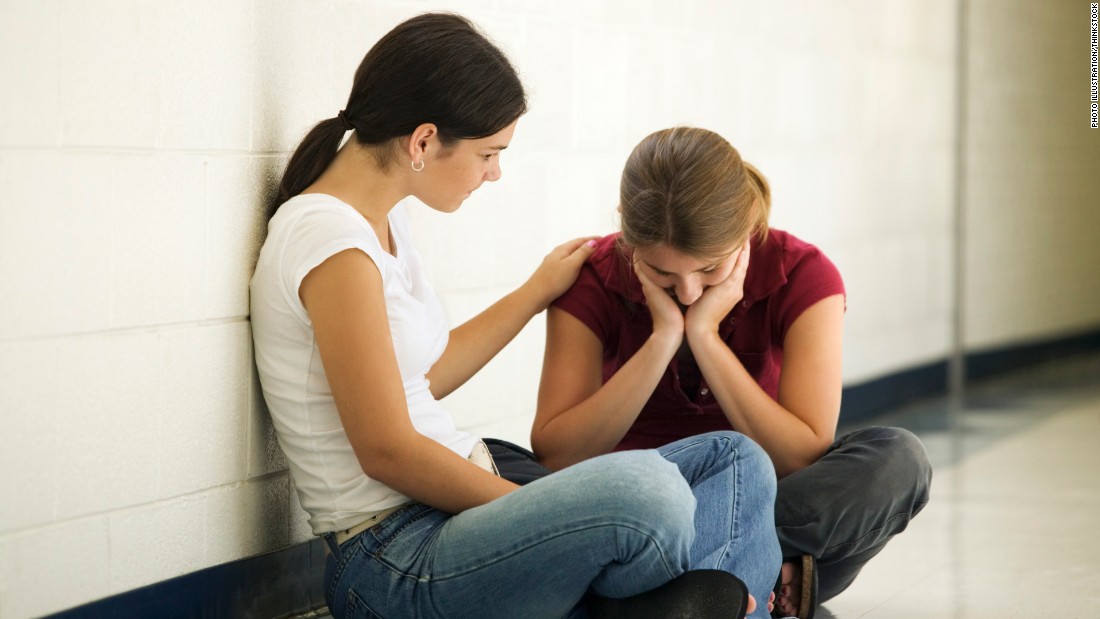Karl Knights, 22, describes himself as a “textbook case” of depressive disorder, having experienced recurrent depressive episodes since he was just 14 — a common age of onset.
His episodes “sneak in the back door,” he says, and when they strike, a battle begins -- against himself.
At first, the fight was pointless, Knights felt. He didn’t know how to win, how to beat his depression.
More than 300 million people are estimated to have depression worldwide, accounting for almost 5% of the population, though some experts believe that rates are higher.
For half of people, one episode is all they’ll experience. But after three or more, these episodes are 90% more likely to become recurrent. This was the case for Knights.
When an episode hits, a feeling of inevitability sets in, says Knights, and he heads deeper down this road on which he must fight himself, with symptoms taking further hold.
As life becomes monochrome and energy fades away, the desire to do simple tasks also dwindles.
Knights grew up in the coastal town of Leiston in the Suffolk countryside. With a population of only 5,500, it’s a small community.
At 18, he moved to Canterbury in nearby Kent for university. The district has a population of more than 162,000, and the university alone has 16,500 students – three times the size of his hometown.
Knights was in for a major readjustment, which experts believe can significantly affect mental health.
“The bigger the change, the more stressful, and that’s more likely to provoke mental health problems,” said Allan Young, professor of mood disorders at Kings College London. “If you go from very rural environment to a city, that’s going to be a huge adjustment, and for people with vulnerabilities, that’s going to lead to problems.”
That was true for Knights, who would soon spiral out of control.
Drug and alcohol abuse are very common with depression and at university, Young said, adding that this further increases a person’s vulnerability to mental health conditions. “[Its] use just makes things worse,” he said.
This fueled Knights’ particular condition, known as melancholic depression, according to Young. It sees people waking up under a black cloud each day, with trouble concentrating and remembering things, unable to even read in Knight's case. The cloud often lifts by evening.
Knights lived with six flatmates whom he considered good friends. They tried to get him help, but for months, he ignored their attempts and continued drinking alone, night after night, waking up alone, unable to move.
Locked in his mind and his body, Knights would belittle what he had become.
Despite attempts to change attitudes around mental health globally, stigma remains, leaving people unable to open up.
Knights now recalls a sense of masculinity and pride that would stop him from seeking help, pushing him deeper into a cloud of hopelessness and desperation.
One night, he would try to change that. Unfortunately, he would fail.
Knights had tried to explain what he was going through to his friends -- but became unaware of where he was or what he was saying. Before he realized it, security had been called, and the police were there to take him away. They detained him under a section of the UK’s Mental Health Act.
Knights says he felt relieved because he knew that something would change. “This was enough for me to feel relief when they arrived.”
That is, until he woke up locked in a white room, with barred windows and doors. And once again, there was no one to talk to.
Knights would first speak to someone three days later, when a psychiatric assessment board would descend upon his room to identify the best means of treatment.
Four people in four chairs in his otherwise empty room would determine his future and help him get better.
Knights consented to going into a rehabilitation hospital, a priory, where over many months he would receive therapy and medication.
He soon learned where he had gone wrong in his reactions to his depression, becoming equipped to learn more about himself and to explore his mind. “Depression is a lifelong condition,” he noted.
He still experiences at least two depressive episodes a year, but these now last a few weeks at a time instead of several months, because he now knows how to deal with it.
If you’re experiencing symptoms of depression the Anxiety and Depression Association of America is an international nonprofit organization providing current treatment, support and resource information. The UK charity Mind also provide advice and support to empower anyone experiencing a mental health problem.
Credits
Editorial: Meera Senthilingam
Design: Sarah-Grace Mankarious, Henrik Pettersson, Mark Oliver
Illustration: Woojin Lee
Development: Marco Chacon


